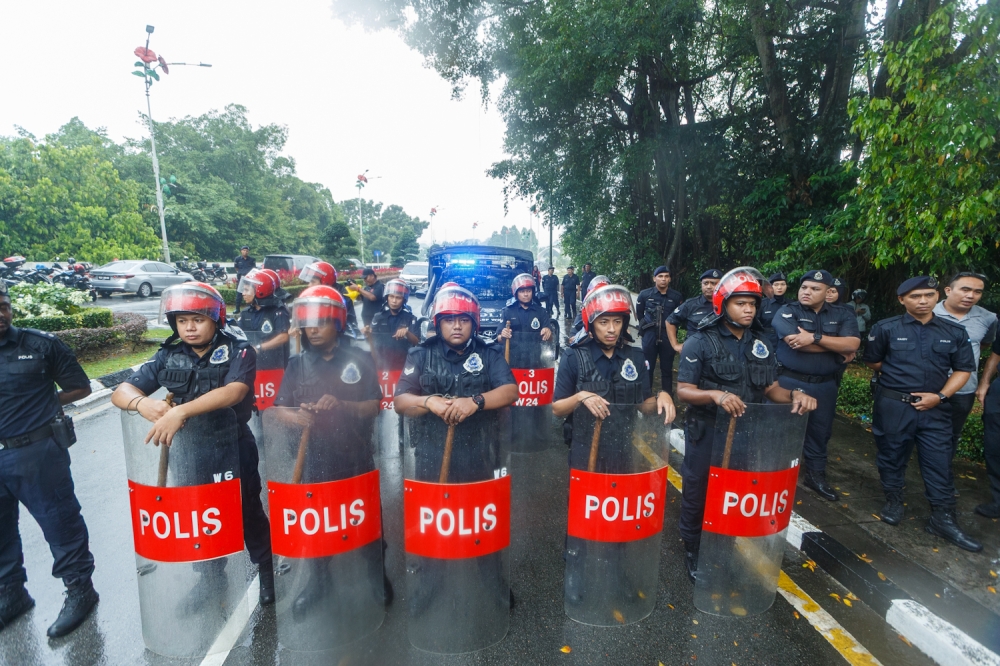KUALA LUMPUR, July 23 — The Attorney-General’s Chambers (AGC) today clarified that civil servants are bound by specific directives issued by the Chief Secretary to the Government (KSN) concerning the prohibition against participating in public assemblies.
In a statement, the AGC said any failure to comply with P.U. (A) 1/2012, P.U. (A) 395/1993, General Orders, circulars, service circulars, rules and other government-issued instructions could result in disciplinary action being taken against the officer under P.U. (A) 395/1993.
“Although Articles 10(1)(a) and 10(1)(b) of the Federal Constitution provide every citizen the right to freedom of speech and expression, as well as the right to assemble peaceably and without arms, these rights are not absolute,” the statement said.
Last week, Chief Secretary to the Government Tan Sri Shamsul Azri Abu Bakar reminded civil servants not to participate in a rally scheduled to be held in the capital this Saturday.
He said it would be inappropriate for civil servants to join the assembly as doing so would go against the principle of Loyalty to the King and Country as enshrined in the Rukun Negara.
Meanwhile, the AGC stated that a public officer was bound by the Letter of Undertaking as provided for under subregulation 20(3) of the Public Officers (Appointments, Promotions and Termination of Services) Regulations 2012 [P.U. (A) 1/2012].
“Under the Letter of Undertaking, every public officer is responsible for complying with all regulations, including the Public Officers (Conduct and Discipline) Regulations 1993 [P.U. (A) 395/1993], General Orders, circulars, service circulars, rules and other directives issued by the Government from time to time during the course of their service,” it said.
According to the statement, under P.U. (A) 1/2012 and P.U. (A) 395/1993, a public officer must at all times demonstrate loyalty to the King, the nation and the government.
“(They must) not act in a manner that tarnishes or discredits the image of the civil service and must not make any public statement that would bring embarrassment or disrepute to the government,” it said. — Bernama







